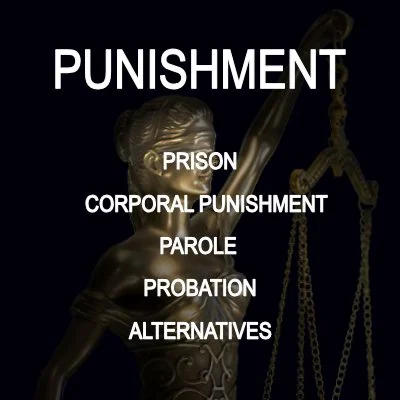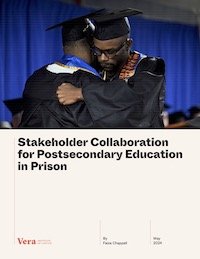Stakeholder Collaboration for Postsecondary Education in Prison
By Faiza Chappell
In the past decade, stakeholder groups have formed across the country to achieve higher-quality postsecondary education in prisons, enhance student outcomes, and push policy changes. This report describes the benefits of emerging stakeholder engagement strategies and trends in stakeholder collaboration. It also serves as a guide to building stakeholder coalitions in the field of postsecondary education in prison. Prison education programs (PEPs) are offered by institutions of higher education and postsecondary vocational institutions that have been approved to operate in a correctional setting. The U.S. Department of Education has requirements that PEPs must follow in order for incarcerated students to access Pell Grants. These requirements include input from a variety of stakeholders to evaluate PEPs and confirm that they are operating in the best interests of the students. After conducting a national scan of existing consortia, the Vera Institute of Justice (Vera) analyzed the information presented in this report from 23 consortia. Vera found that tapping into the expertise of various stakeholders is a crucial element in ensuring high-quality education practices for incarcerated students.
Key Takeaway
Stakeholder groups provide a foundation built on a common mission, with substantive achievable goals and structures for the work to thrive, allowing stakeholders to collaborate effectively. Stakeholder feedback is a critically important practice that should be at the forefront in the expansion of postsecondary education in prison.
New York: Vera Institute of Justice, 2024. 28p.


